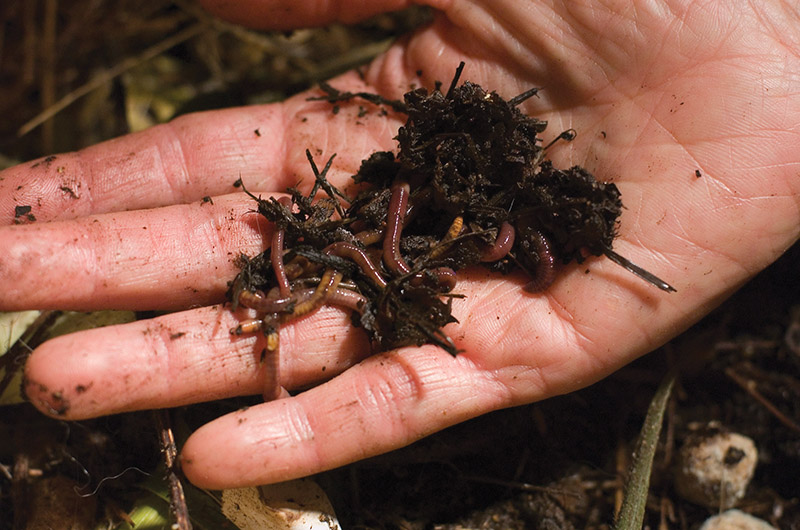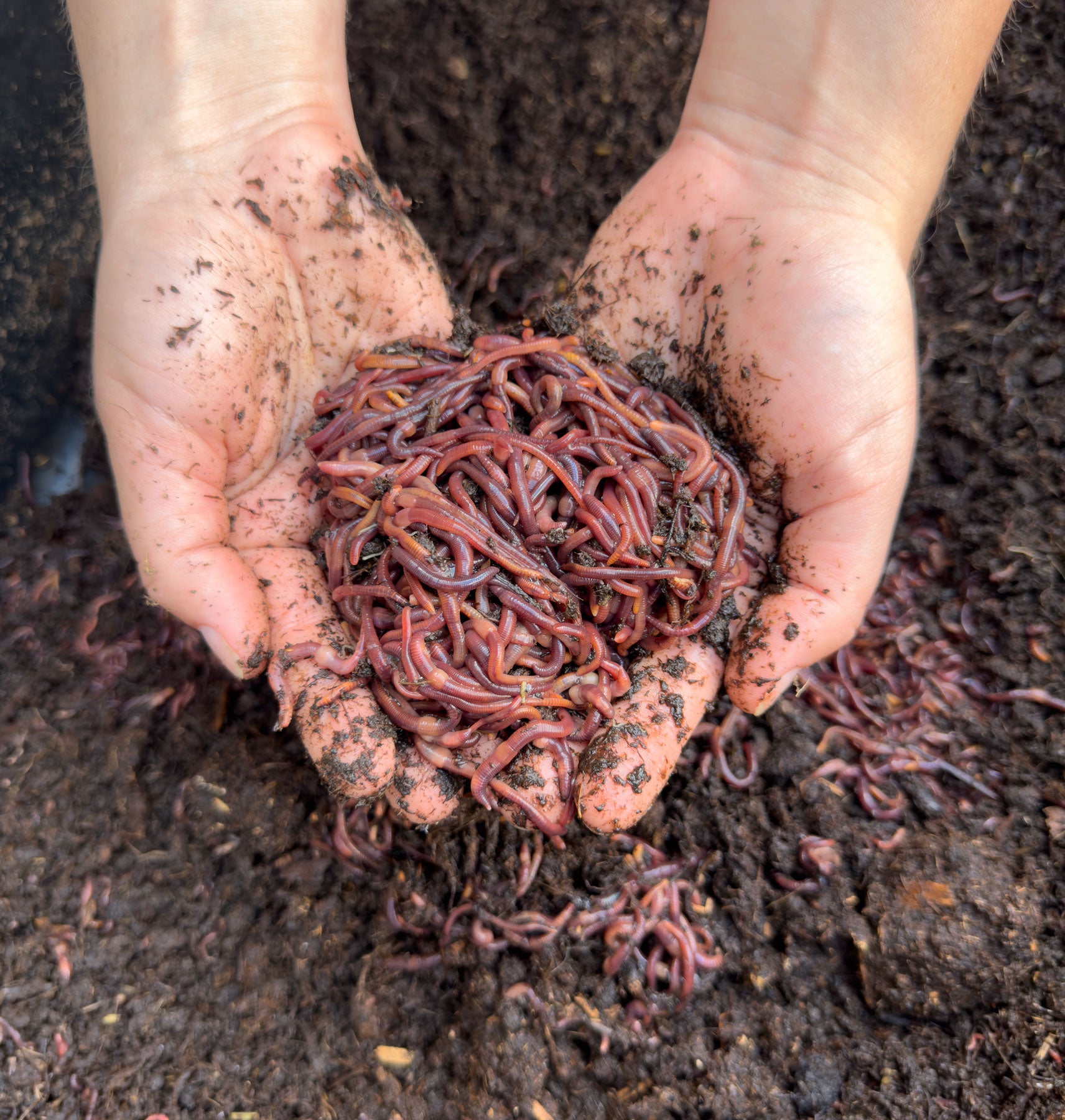Get Red Wiggler Worms - Suitable for Composting and Horticulture
Get Red Wiggler Worms - Suitable for Composting and Horticulture
Blog Article
Red Wiggler Worms Demystified: Opening the Keys of Vermiculture for Greener Living and Nutrient-Rich Dirt
In the realm of lasting methods for enriching soil top quality and promoting eco-conscious living, red wiggler worms play a critical yet frequently ignored function. Red Wiggler Worms. Understanding the ins and outs of caring for these worms, optimizing their atmosphere, and utilizing their spreadings can lead to a greener way of life and healthier soil for plants to prosper.
The Role of Red Wiggler Worms
Red Wiggler worms play an essential duty in composting systems by effectively damaging down raw material into nutrient-rich spreadings. These voracious eaters consume a range of natural materials, such as cooking area scraps, backyard waste, and paper items. As they feed, the worms' digestive system procedures break down the organic matter right into a penalty, dark, and nutrient-dense material recognized as worm spreadings or vermicompost.
The spreadings produced by Red Wiggler worms are very useful for soil health and wellness and plant development. They are rich in important nutrients like nitrogen, phosphorus, and potassium, which are essential for sustaining healthy and balanced plant advancement. Additionally, worm castings have helpful microbes and enzymes that aid improve soil structure, increase water retention, and improve nutrient uptake by plants.
Benefits of Vermicomposting

Additionally, vermicompost, the nutrient-rich final product of vermicomposting, acts as an exceptional natural fertilizer and soil conditioner. It improves dirt framework, boosts dirt aeration, and boosts dirt dampness retention. These residential properties add to healthier plants with stronger origin systems and better resistance to diseases and parasites. Vermicompost also enriches the dirt with essential nutrients like nitrogen, phosphorus, and potassium, promoting plant growth and total soil fertility.
Additionally, vermicomposting supports sustainable gardening practices by offering a chemical-free and natural alternative to synthetic fertilizers. Red Wiggler Worms. This eco-friendly strategy not just enhances the soil yet likewise helps reduce dependence on harmful chemicals, promoting a greener and much more lasting method of gardening
Setting Up a Worm Bin
When developing a worm container for vermicomposting, correct configuration is important to ensure the success of the composting process. The very first action in establishing up a worm bin is picking an ideal container. This can be a plastic bin or wood box that provides adequate resource room for the worms to move around and has proper drain holes to stop waterlogging. Next, a bed linens product such as shredded newspaper, cardboard, or coconut coir need to be included in the container. This bed linen supplies a comfortable atmosphere for the worms and helps keep wetness degrees.
After including the bedding, present the red wiggler worms to the container. The worms ought to after that be provided with continue reading this food scraps such as fruit and veggie peels, coffee premises, and eggshells.
Frequently keep track of the moisture levels and temperature level in the worm container to guarantee optimal problems for the worms. With proper setup and upkeep, the worm bin will efficiently convert natural waste right into nutrient-rich compost for your plants and garden.
Harvesting Worm Spreadings
To successfully accumulate nutrient-rich worm spreadings from your vermicomposting system, a methodical harvesting approach is necessary. When it comes time to harvest the worm castings, there are a few vital actions to follow to make certain a successful process. To start with, quit including fresh food scraps away of the worm bin for a pair of weeks before gathering. This urges the worms to migrate to the side with fresh bedding and food, making it less complicated to scoop out the castings from the opposite side.

Troubleshooting Common Issues
Determining and resolving typical challenges that might emerge throughout the vermicomposting process is vital for keeping a healthy and efficient worm container. Including excess food scraps can lead to an accumulation of moisture and level of acidity in the worm container, possibly hurting the worms. An additional concern is undesirable odors emanating from the worm container.
Furthermore, if the worm population is decreasing or the worms show up harmful, maybe as a result of ecological stressors such as extreme temperature levels or pH degrees. Monitoring these factors and making essential modifications is essential for the well-being of the worms. By fixing these usual problems immediately, vermicomposters can ensure a effective and smooth vermicomposting process while maintaining a hop over to these guys growing worm population.

Verdict
In verdict, red wiggler worms play a critical role in vermiculture by damaging down organic issue right into nutrient-rich soil. Setting up a worm bin is crucial for effective vermiculture, and collecting worm spreadings provides beneficial compost for gardening.
As they feed, the worms' digestion processes break down the natural matter into a fine, dark, and nutrient-dense product understood as worm spreadings or vermicompost.
The castings generated by Red Wiggler worms are extremely valuable for soil health and wellness and plant development. Including excess food scraps can lead to an accumulation of wetness and level of acidity in the worm bin, potentially damaging the worms.In addition, if the worm population is declining or the worms appear harmful, it might be due to ecological stress factors such as extreme temperatures or pH levels. Establishing up a worm container is important for successful vermiculture, and collecting worm castings provides valuable compost for horticulture.
Report this page